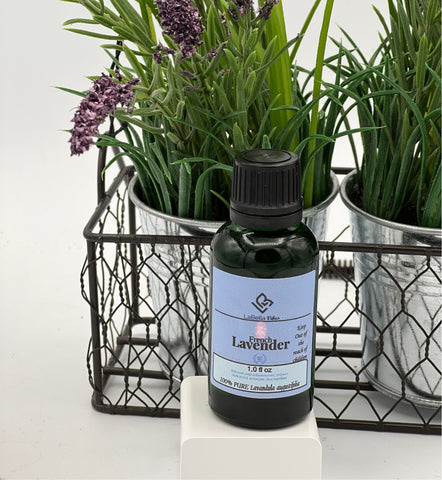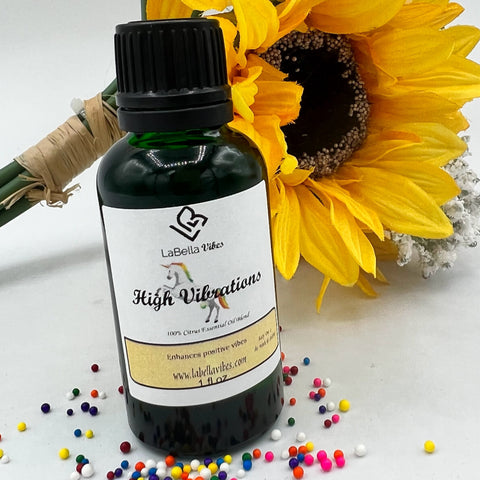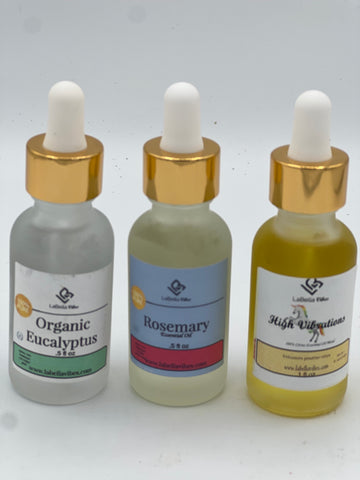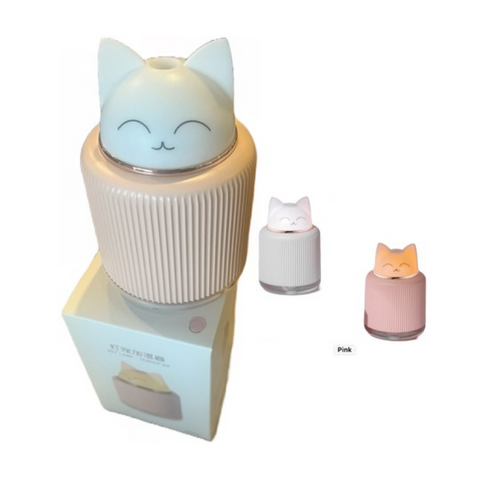Navigating Spring Allergies Naturally
As someone who lives in the Southern states, I can attest to the challenges that come with the arrival of spring. This time of the year can be rough for a lot of people, myself included. Seasonal allergies tend to plague us just as we're eagerly anticipating the greening of the grass, the blossoming of flowers, and the revitalization of nature. Unfortunately, with all this beauty comes a downside: pollen. It seems like no matter where we turn, it's in the air, on our cars, and clinging to every surface. But pollen isn't the only culprit; over the winter months, our homes have become havens for other irritants like pet dander and dust bunnies, hiding in corners and under beds, just waiting to trigger those dreaded allergy symptoms.
Understanding Seasonal Allergies
Seasonal allergies, often referred to as hay fever or allergic rhinitis, occur when the body's immune system overreacts to allergens present in the environment. These allergens can include pollen from trees, grasses, and weeds, as well as indoor irritants like dust mites, pet dander, and mold spores. When exposed to these allergens, the immune system releases chemicals like histamine, leading to inflammation in the nasal passages, throat, and eyes. This inflammatory response results in a variety of unpleasant symptoms, including sneezing, congestion, runny or itchy nose, watery or itchy eyes, and sometimes even coughing or wheezing.
Natural Remedies for Allergy Management
While over-the-counter and prescription medications can provide relief from allergy symptoms, many people seek out natural remedies to alleviate their discomfort. Natural remedies offer an alternative approach that can complement traditional treatments, providing relief without the potential side effects associated with certain medications. By incorporating natural remedies into our allergy management routines, we can reduce our reliance on medication while still effectively managing our symptoms and improving our overall well-being.
Creating an Allergy-Friendly Indoor Environment
To create an allergy-friendly environment indoors, consider implementing the following tips:
- Regular Cleaning: Vacuum carpets and rugs weekly, mop floors, and dust surfaces frequently to remove dust and pet dander. Aim to clean high-touch surfaces like doorknobs and light switches at least once a week.
- Use High-Efficiency Air Filters: Install high-efficiency particulate air (HEPA) filters in your HVAC system to trap airborne allergens effectively. Replace filters every 3 months or as recommended by the manufacturer.
- Keep Windows Closed During Peak Pollen Times: Check local pollen forecasts to determine peak pollen times in your area, typically early morning or on windy days, and keep windows closed to prevent pollen from entering your home.
- Use Allergen-Proof Bedding Covers: Encase mattresses, pillows, and box springs in allergen-proof covers to prevent dust mites from accumulating. Wash bedding in hot water weekly to kill dust mites.
- Groom Pets Regularly and Keep Them Out of Bedrooms: Bathe pets regularly and brush them outside to reduce the spread of pet dander. Keep pets out of bedrooms to minimize allergen exposure while sleeping.
- Incorporate Essential Oils into Cleaning Routines: Add a few drops of essential oils with anti-inflammatory properties, like eucalyptus or tea tree oil, to homemade cleaning solutions to enhance allergy relief during household cleaning.
Minimizing Pollen Accumulation Indoors
Additionally, to minimize pollen accumulation indoors, consider the following practices:
- Opt for hard flooring surfaces instead of carpets, as they can trap allergens.
- Regularly wash curtains, blinds, and other window treatments to remove dust and pollen.
- Frequently clean air vents and ducts to prevent the spread of allergens throughout your home.
Taking a Comprehensive Approach
Furthermore, when cleaning, ensure to tackle those pesky dust bunnies from top to bottom, including hard-to-reach areas like ceiling corners and ceiling fans. Ceiling fans have the potential to accumulate dust and spread allergens throughout the room when turned on, so wipe them down regularly to maintain cleanliness. Opt for machine-washable throw rugs and launder them weekly in hot water to effectively remove dust and allergens. By addressing these often overlooked areas and incorporating these additional cleaning steps into your routine, you can further reduce indoor allergen exposure and create a more allergy-friendly home environment.
Click on picture for more information on the essential oils above.
Harnessing the Power of Essential Oils
While we might not always think about the benefits of essential oils for combating allergies, they offer a natural and effective way to alleviate symptoms while providing additional health benefits such as boosting immunity and reducing stress. Stocking up on essential oils is a great idea, allowing you to create your own blends for added benefits. Now, let's delve into the overview of essential oils commonly used to combat seasonal allergies and how to use them for maximum relief:
- Peppermint oil: Known for its cooling sensation, peppermint oil can help clear sinuses and alleviate congestion. Add a few drops to a diffuser or inhale directly from the bottle for quick relief.
- Lavender oil: With its soothing properties, lavender oil can calm inflammation and reduce allergy symptoms. Dilute with a carrier oil and apply topically to the chest or temples, or add to a warm bath for relaxation.
- Eucalyptus oil: Eucalyptus oil acts as a decongestant and anti-inflammatory agent, helping to clear nasal passages and ease breathing. Add a few drops to hot water and inhale steam, or dilute with a carrier oil and apply to the chest or throat.
- Tea tree oil: Tea tree oil has antimicrobial properties that can reduce allergen exposure and prevent infections. Add to a diffuser to purify the air.
- Chamomile oil: Chamomile oil has anti-inflammatory and calming effects, making it useful for allergy relief. Dilute with a carrier oil and apply topically to the skin, or add a few drops to a warm compress for soothing relief.
- Lemon oil: Lemon oil has cleansing properties that can clear the air of allergens and boost immunity. Add a few drops to a diffuser or mix with water in a spray bottle for a refreshing air freshener.
Incorporating Essential Oils Safely
When using essential oils for allergies, it's important to take safety precautions such as diluting them properly with a carrier oil, performing a patch test to check for allergic reactions, and avoiding direct contact with sensitive areas like the eyes and mucous membranes. By incorporating these essential oils into your allergy management routine, you can enjoy natural relief from symptoms while promoting overall health and well-being.
Adopting Allergy-Friendly Lifestyle Habits
In addition to incorporating natural remedies into your home environment, adopting allergy-friendly lifestyle habits can further alleviate symptoms and promote overall well-being.
- Consuming local honey is believed to build tolerance to pollen gradually, as it contains small amounts of pollen from local flowers.
- Eating a balanced diet rich in anti-inflammatory foods can help reduce inflammation in the body and potentially ease allergy symptoms.
- Practicing nasal irrigation with a saline solution can clear nasal passages of allergens and mucus, providing relief from congestion and irritation.
- Keeping indoor humidity levels between 30-50% helps prevent mold growth, a common allergen, and promotes a healthier indoor environment.
- Regular exercise boosts immunity and reduces inflammation, potentially decreasing the severity of allergy symptoms.
- Managing stress levels is essential, as stress can weaken the immune system and exacerbate allergy symptoms.
Utilizing natural methods to combat seasonal allergies offers a host of benefits beyond symptom relief. These natural remedies not only alleviate allergy symptoms effectively but also promote overall health and well-being. However, it's essential to remember that individual responses to these remedies may vary, and consulting with a healthcare professional can provide personalized advice tailored to your specific needs. By experimenting with different remedies under professional guidance, you can take control of your allergy symptoms naturally and enjoy a happier, healthier life free from the burdens of seasonal allergies.





